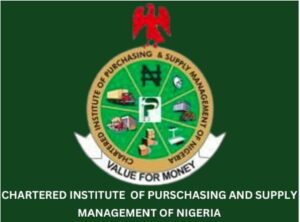The Chartered Institute of Purchasing and Supply Management of Nigeria (CIPSMN) has opposed the launch of the National Procurement Certification Project by the Bureau of Public Procurement (BPP), which is in collaboration with the Chartered Institute of Procurement and Supply, United Kingdom (CIPS-UK), and supported by the World Bank.
CIPSMN described the initiative as violating Section 16 of its Establishment Act and the Public Procurement Act No. 14 of 2007.
According to the institute, the National Procurement Certification Project not only conflicts with existing Nigerian laws but also breaches the regulatory and statutory responsibilities granted to CIPSMN under its Act.
The institute argues that the project undermines its legal mandate to regulate training, certification, and professional procurement practice in Nigeria.
In a statement issued to journalists in Abuja, registrar and chief executive officer of CIPSMN, Prof. M.J. Aliyu said, “It is on record that the persistent attempt to undermine CIPSMN’s statutory role is legendary.”
He noted a consistent pattern—starting with the establishment of the Due Process Office, followed by the appointment of two director-generals from unrelated professional backgrounds and the recent appointment of Dr Adebowale Adedoyin, whom he claimed is not legally qualified under Nigerian law to hold that office.
He argued that all BPP director-generals, past and present, have failed to meet this legal requirement, which is standard practice globally in countries like the UK, USA, and India—leaders in procurement reform.
“The BPP has abandoned its statutory oversight and regulatory responsibilities in procurement and has instead assumed the role of recruitment, training, and certification—roles outside its legal powers,” he said.
He further explained that the Public Procurement Act (PPA) 2007 establishes the BPP, outlines its functions in Section 4, including policy harmonization, setting procurement standards, and building professional capacity. Nowhere in the Act is BPP authorised to conduct certification of procurement professionals.
He criticised the BPP’s recent launch of the SPESSE “Certification Portal,” stating that it falsely implies the Bureau has the authority to certify procurement professionals. He also pointed out the continued absence of the National Council on Public Procurement (NCPP), as mandated in Section 1 of the PPA, which has allowed the BPP to operate unchecked.
“For over 14 years, BPP has neglected its legal duty to conduct procurement audits and report biannually to the National Assembly, as required under Section 5(p). The Bureau has become like a ‘bull in a china shop’—acting without regard for the law or institutional checks,” he said.
According to him, the Nigerian Procurement Certification Programme (NPCP), as interpreted by the BPP, wrongly claims to be Nigeria’s gateway to professional procurement practice. While its goals—such as enhancing procurement standards and ensuring value for money—align with the Bureau’s broader mandate, its implementation raises serious legal, ethical, and professional concerns.
He argued that the PPA does not authorise BPP to run a certification programme independent of CIPSMN. He acknowledged that the BPP may enter into international partnerships, but only with Council approval and without violating existing Nigerian laws.
“The issue of certifying procurement professionals is a major national concern,” Prof. Aliyu stressed. “Only CIPSMN, established by Act No. 21 of 2007, is legally empowered to do this—just like the Medical and Dental Council regulates doctors, the Council for Legal Education regulates lawyers, COREN handles engineering, and ICAN or ANAN oversee accounting practices.”
He concluded that while the BPP may offer training and issue certificates of participation, it cannot legally authorise or certify professional practice without involving CIPSMN. Any certification programme carried out in collaboration with CIPS-UK, the World Bank, or other stakeholders, without CIPSMN’s approval, is unlawful and will be legally challenged.





